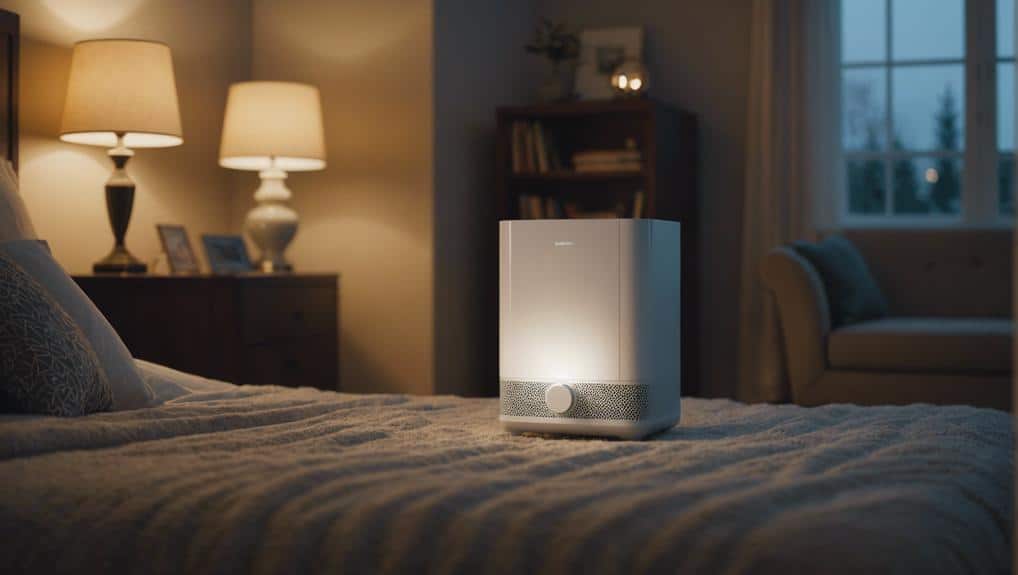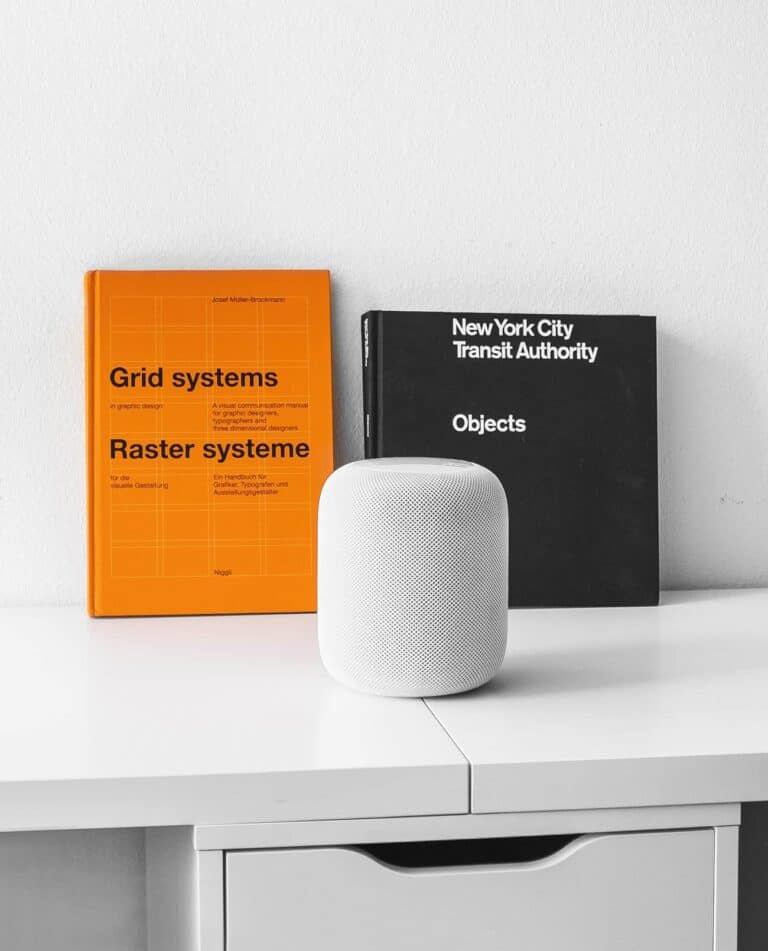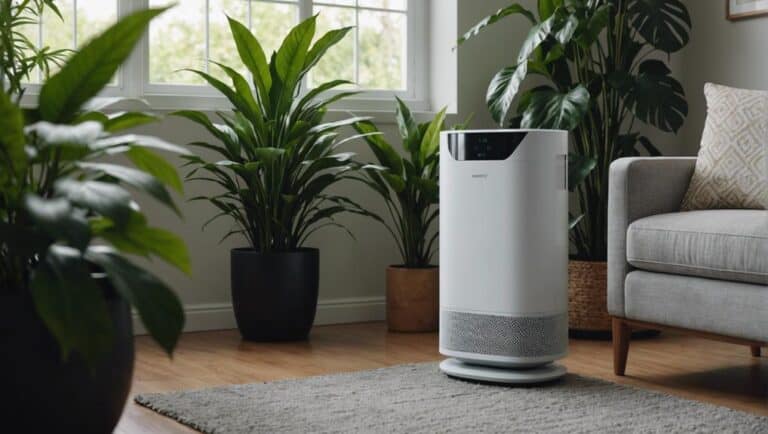The Effectiveness of HEPA Air Purifiers
When it comes to creating a healthier indoor environment, HEPA air purifiers have been a go-to solution for many. The question lingers, though: do these devices truly live up to their reputation? Let’s explore the science behind HEPA filter technology and uncover the facts that make these purifiers a staple in homes and workplaces alike.
HEPA Filter Technology Explained
In the field of air purification, HEPA filter technology stands as a cornerstone, developed in the 1940s by the U.S. Department of Energy to combat radioactive dust contamination. HEPA filters are designed to capture 99.97% of particles as small as 0.3 microns, effectively removing indoor air pollutants like pet dander, pollen, smoke, and dust.
The efficiency of HEPA filters lies in their dense arrangement of fibers, pleated to increase surface area and prolong lifespan. These filters excel at trapping various particle sizes, contributing greatly to improved indoor air quality. However, it’s important to note that HEPA filters have limitations; they aren’t effective against volatile organic compounds (VOCs) and small gas molecules.
To maintain peak performance, regular replacement of HEPA filters is necessary. When it comes to air cleaning, understanding the capabilities and constraints of HEPA technology empowers us to make informed decisions for controlling indoor air quality.
Benefits for Allergy and Asthma Relief
For allergy and asthma sufferers, HEPA air purifiers offer significant relief by effectively capturing and removing airborne allergens and irritants. These purifiers equipped with HEPA filters can capture particles as small as 0.3 microns, including common allergens like pollen and pet dander, improving indoor air quality and reducing exposure to asthma triggers such as dust mites, mold spores, and smoke particles.
By removing these airborne allergens and pollutants, HEPA air purifiers help alleviate asthma symptoms and decrease allergy flare-ups, promoting better respiratory health for individuals. Studies have shown that using HEPA air purifiers can lead to a noticeable decrease in allergy and asthma symptoms, making them a valuable tool for those seeking relief from indoor pollutants.
With their ability to effectively remove allergens and improve air quality, HEPA air purifiers are a proactive choice for managing allergies and asthma.
Maintenance Tips for Optimal Performance
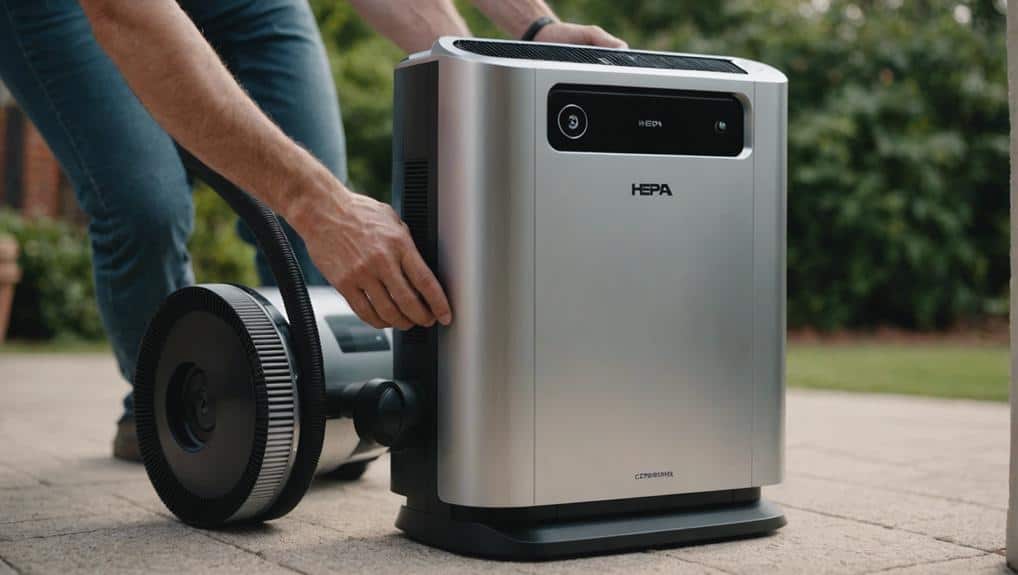
Properly maintaining HEPA air purifiers is essential for ensuring their peak performance and longevity. Regularly changing HEPA filters every 6-12 months is important to maintain peak performance.
Ensuring proper placement of the air purifier for efficient air circulation is key in enhancing its effectiveness. Monitoring energy consumption levels is crucial for maintaining cost efficiency while using the air purifier.
Checking noise levels of the air purifier can help identify any potential issues affecting its performance. Researching specific model guidelines and recommendations is recommended to maximize the air purifier’s effectiveness.
Comparing HEPA to Other Air Filters
When comparing HEPA filters to other air filters, their superior efficiency in removing allergenic fragments and smoke particles stands out. HEPA filters are designed to capture 99.97% of particles as small as 0.3 microns, making them highly effective in air purification.
Unlike some air filters that may only trap larger particles, HEPA filters excel at capturing even the tiniest airborne contaminants, thereby greatly improving indoor air quality. True HEPA filters, meeting the U.S. HEPA standard, offer the highest level of filtration efficiency.
Their dense fiber structure and pleated design provide increased surface area for capturing pollutants, ensuring cleaner air. In the domain of air purification, opting for true HEPA filters guarantees a thorough removal of particles, making them a top choice for those seeking excellent control over their indoor environment.
Real-world Effectiveness Studies
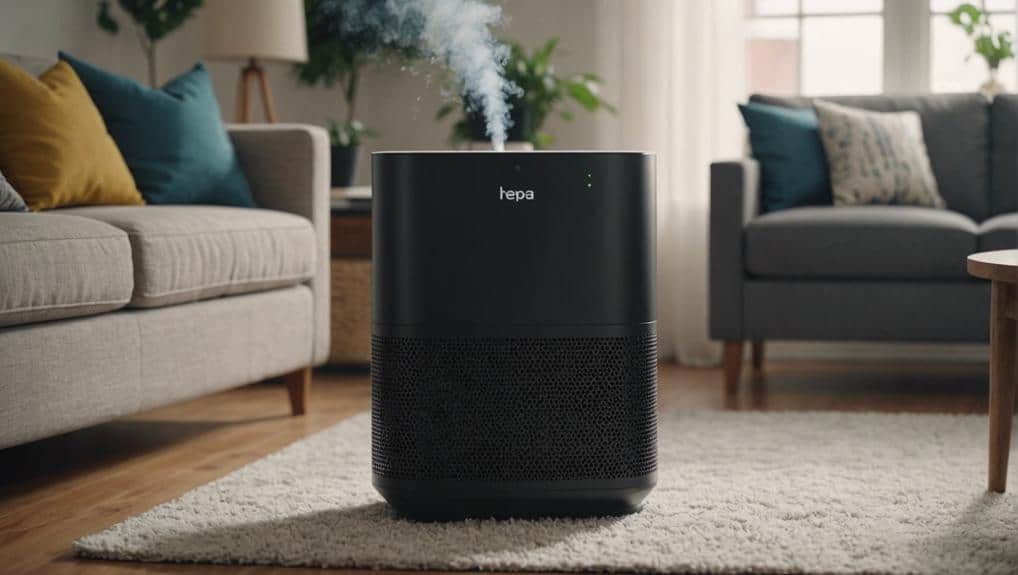
In real-world effectiveness studies, HEPA air purifiers have consistently shown their ability to greatly reduce indoor particulate matter concentrations. HEPA filters, present in these air purifiers, efficiently capture particles as small as 0.3 microns, enhancing indoor air quality by reducing allergens, dust, and other airborne particles.
Research has also demonstrated the effectiveness of HEPA air purifiers in removing viruses and bacteria from indoor environments, making them an essential tool in maintaining a healthier living or working space. Additionally, these studies have highlighted the significant role of HEPA air purifiers in decreasing respiratory irritants, contributing to an overall improvement in air quality within homes and offices.
Conclusion
To sum up, HEPA air purifiers are a game-changer for improving indoor air quality and promoting better respiratory health.
With their advanced filter technology, these devices effectively capture harmful particles and allergens, providing relief for allergy and asthma sufferers.
By following maintenance tips and choosing HEPA over other air filters, individuals can experience a cleaner and safer living or working environment.
Studies have shown the real-world effectiveness of HEPA air purifiers, making them essential for maintaining a healthy indoor space.
